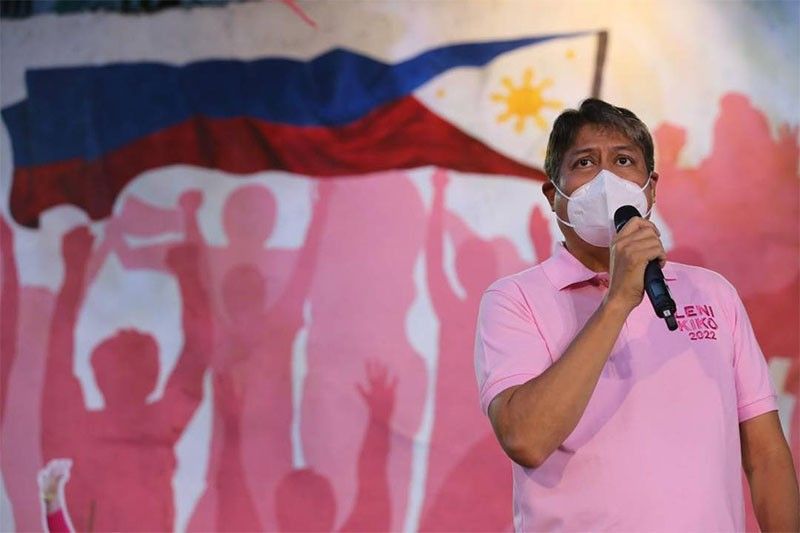Pangilinan pushes 'Bawat Pamilya May College Gradweyt' for more student subsidies

MANILA, Philippines — Senator Francis "Kiko" Pangilinan has filed a measure which seeks to create the "Bawat Pamilya May College Gradweyt" Program guaranteeing full support to at least one member of every eligible Filipino family in completing a college degree.
Under Senate Bill No. 2495, beneficiaries will receive full tuition and other subsidies.
Priority will be given to first-generation college students, learners who are part of households listed under the Social Welfare and Development's "Listahan 2.0", and students from low-income households.
The Listahan 2.0 contains a list of over 5 million poor households.
"This proposed measure seeks to deliver on the Constitutional obligation of the State to protect and promote the rights of Filipino students to quality education, especially those from the poorest and most vulnerable families," Pangilinan said in the bill's explanatory note.
The bill also calls for the expansion of the Unified Student Financial Assistance System for Tertiary Education (Unifast) Board to include the Secretary of the Department of Social Welfare and Development as an ex-officio member, and the Philippine Association of State Universities and Colleges and Coordinating Council of Private Educational Associations as members, including others.
The Unifast Board, currently chaired by the Commission on Higher Education, handles all student financial assistance programs for tertiary education.
If passed into law, the bill will require the Unifast Board to submit yearly reports on the program's implementation and targets.
'Economic concerns hinder learners from pursuing college education'
The bill seeks to amend portions of "Universal Access to Quality Tertiary Education Act" or Republic Act No. 10931, which was signed into law in 2017.
Pangilinan noted that before RA No. 10931 was passed, only two out of five high school graduates were able to pursue college.
"However, even with the passage of said Act, economic concerns still prevent students from low-income families from pursuing and/or completing tertiary education," the senator said.
He said that the onset of the COVID-19 pandemic and shift to online learning further aggravated the concerns, preventing thousands of students from pursuing or continuing tertiary studies.
In 2017, there were around nine percent or 3.6 million of 39.2 million Filipinos aged 6 to 24 years who were classified as out-of-school children and youth (OSCY), based on an annual survey from the Statistics authority.
OCSYs are those aged 6 to 14 years old who are not attending formal school; and those aged 15 to 24 who are not in school, not gainfully employed and have not completed college or a post-secondary course.
Majority or 83% of the OSCYs in 2017 were 16 to 24 years old, or were young Filipinos who should be going to college or working. Around half of the OSCYs belong to families who are part of low income groups.
Pangilinan believes that the plight of OCSYs may have gotten worse in the last two years due to the pandemic's impacts on education and employment.
Pangilinan is running for vice president alongside Vice President Leni Robredo.
- Latest
- Trending
































